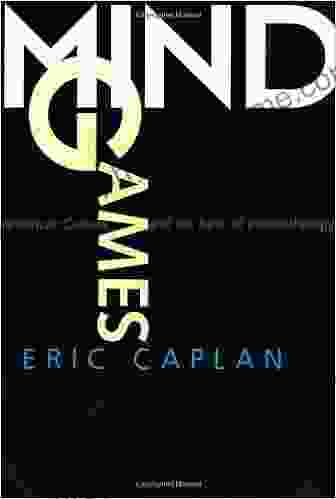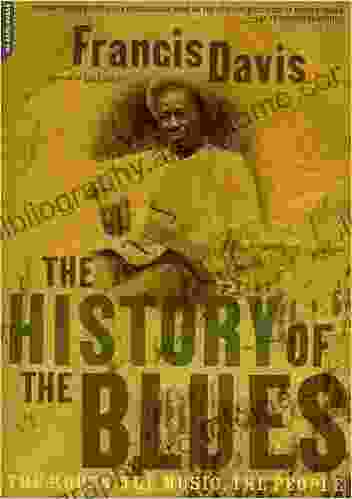American Culture and the Birth of Psychotherapy: Medicine and Society

5 out of 5
| Language | : | English |
| File size | : | 3080 KB |
| Text-to-Speech | : | Enabled |
| Screen Reader | : | Supported |
| Word Wise | : | Enabled |
| Print length | : | 246 pages |
| Lending | : | Enabled |
Psychotherapy, as we know it today, is a cornerstone of mental health care. But its origins and development are intertwined with the cultural, social, and medical landscape of the United States. In "American Culture and the Birth of Psychotherapy: Medicine and Society," acclaimed historian Edward Shorter provides a comprehensive examination of this fascinating relationship.
Through meticulous research and vivid storytelling, Shorter unveils the complex tapestry that led to the emergence of psychotherapy as a legitimate medical practice. He explores the influence of social movements, medical advancements, and cultural beliefs that shaped its evolution.
America's Quest for the "Mind Cure"
In the 19th century, America witnessed a surge in spiritualism, mesmerism, and other alternative healing practices. These movements reflected a widespread belief in the power of the mind to heal the body. Shorter traces how these ideas found their way into medical circles, influencing the development of early psychotherapeutic techniques.
Meanwhile, the rise of industrialization and urbanization brought with them a host of social problems that manifested in psychological distress. The need for effective treatments for mental illnesses became increasingly pressing, leading to the search for a "mind cure."
The Rise of Psychoanalysis
In the early 20th century, Sigmund Freud's groundbreaking theories of psychoanalysis gained traction in the United States. Psychoanalysis offered a radical new approach to understanding the human mind, emphasizing the importance of unconscious processes and childhood experiences.
Shorter examines how American culture embraced psychoanalysis, becoming a cultural phenomenon. He traces its impact on literature, popular culture, and even religious thought. However, he also highlights the controversies and challenges that accompanied its rise.
The Institutionalization of Psychotherapy
As psychoanalysis gained acceptance, it gradually became institutionalized within the medical establishment. The formation of professional organizations and the development of training programs legitimized the practice of psychotherapy.
Shorter explores the factors that contributed to the institutionalization of psychotherapy, including the increased demand for mental health services, the influence of insurance companies, and the changing social attitudes towards mental illness.
Social and Cultural Influences
"American Culture and the Birth of Psychotherapy" not only chronicles the history of psychotherapy but also delves into its social and cultural influences. Shorter analyzes how cultural values, such as individualism, self-reliance, and optimism, shaped the development of psychotherapeutic approaches.
He also examines the impact of social movements, such as the Civil Rights Movement and the feminist movement, on the practice of psychotherapy. These movements challenged traditional norms and expanded the perspectives of therapists, leading to a more inclusive and culturally sensitive approach.
"American Culture and the Birth of Psychotherapy: Medicine and Society" is a masterful work that sheds light on the complex relationship between American culture and the emergence of psychotherapy. Edward Shorter provides a rich and nuanced account, weaving together historical events, cultural trends, and medical advancements to paint a vivid picture of the forces that shaped the practice we know today.
Whether you are a historian, a mental health professional, or simply curious about the history of ideas, "American Culture and the Birth of Psychotherapy" is an essential read. It offers a fascinating glimpse into the origins of a discipline that has profoundly impacted our understanding of mental health and human nature.
5 out of 5
| Language | : | English |
| File size | : | 3080 KB |
| Text-to-Speech | : | Enabled |
| Screen Reader | : | Supported |
| Word Wise | : | Enabled |
| Print length | : | 246 pages |
| Lending | : | Enabled |
Do you want to contribute by writing guest posts on this blog?
Please contact us and send us a resume of previous articles that you have written.
 Book
Book Novel
Novel Page
Page Chapter
Chapter Text
Text Story
Story Genre
Genre Reader
Reader Library
Library Paperback
Paperback E-book
E-book Magazine
Magazine Newspaper
Newspaper Paragraph
Paragraph Sentence
Sentence Bookmark
Bookmark Shelf
Shelf Glossary
Glossary Bibliography
Bibliography Foreword
Foreword Preface
Preface Synopsis
Synopsis Annotation
Annotation Footnote
Footnote Manuscript
Manuscript Scroll
Scroll Codex
Codex Tome
Tome Bestseller
Bestseller Classics
Classics Library card
Library card Narrative
Narrative Biography
Biography Autobiography
Autobiography Memoir
Memoir Reference
Reference Encyclopedia
Encyclopedia Scott Stossel
Scott Stossel Nick Sommerlad
Nick Sommerlad Eugene Bach
Eugene Bach Raji Thron
Raji Thron Etienne Wenger
Etienne Wenger Julie Wilder
Julie Wilder Marcus A Pfeiffer
Marcus A Pfeiffer Jonathan J O
Jonathan J O Guylain Katombe
Guylain Katombe Sue Reed
Sue Reed Nico Anastasio
Nico Anastasio Sam Roberts
Sam Roberts Salvador Novo
Salvador Novo Erick Vaughn Wolfe
Erick Vaughn Wolfe Eric Geoffroy
Eric Geoffroy Emeril Lagasse
Emeril Lagasse Ericka Parrott
Ericka Parrott Esther Lightcap Meek
Esther Lightcap Meek Summer Sterling
Summer Sterling Evelyn Fox Keller
Evelyn Fox Keller
Light bulbAdvertise smarter! Our strategic ad space ensures maximum exposure. Reserve your spot today!

 Pat MitchellMastering Remote Access with Windows Server 2024: A Comprehensive Guide to...
Pat MitchellMastering Remote Access with Windows Server 2024: A Comprehensive Guide to...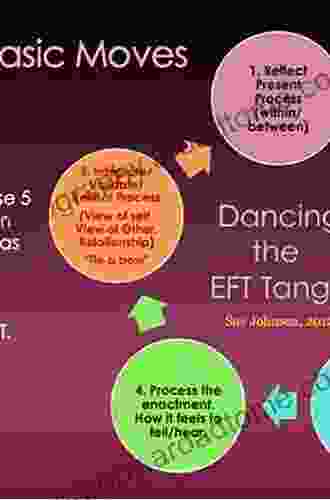
 Nick TurnerUnveiling the Secrets of Emotion-Focused Couples Therapy: A Guide to Enhanced...
Nick TurnerUnveiling the Secrets of Emotion-Focused Couples Therapy: A Guide to Enhanced...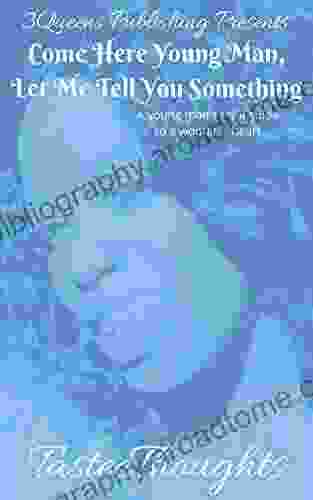
 Ervin BellYoung Man Mini Guide To Woman Heart: The Ultimate Guide to Understanding and...
Ervin BellYoung Man Mini Guide To Woman Heart: The Ultimate Guide to Understanding and... Michael SimmonsFollow ·11.8k
Michael SimmonsFollow ·11.8k Cade SimmonsFollow ·12k
Cade SimmonsFollow ·12k Elias MitchellFollow ·10.9k
Elias MitchellFollow ·10.9k Elliott CarterFollow ·19k
Elliott CarterFollow ·19k Bryce FosterFollow ·6.2k
Bryce FosterFollow ·6.2k Lord ByronFollow ·19.3k
Lord ByronFollow ·19.3k Bill GrantFollow ·7.5k
Bill GrantFollow ·7.5k Juan ButlerFollow ·16k
Juan ButlerFollow ·16k
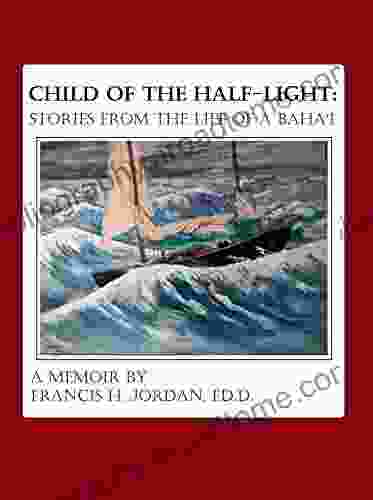
 Troy Simmons
Troy SimmonsStories From The Life Of Baha: A Must-Read For Spiritual...
Discover the Inspiring Teachings and Enriching...

 Wesley Reed
Wesley ReedDuke Review of MRI Principles: Case Review - Your Gateway...
Unveiling the Essence...

 Ralph Waldo Emerson
Ralph Waldo EmersonThe Big Book of NFTs: Your Ultimate Guide to the Digital...
In the rapidly evolving world of digital...

 Jason Hayes
Jason HayesUnveiling the Labyrinth: The Cheat Sheet Novel and its...
In the realm...
5 out of 5
| Language | : | English |
| File size | : | 3080 KB |
| Text-to-Speech | : | Enabled |
| Screen Reader | : | Supported |
| Word Wise | : | Enabled |
| Print length | : | 246 pages |
| Lending | : | Enabled |


